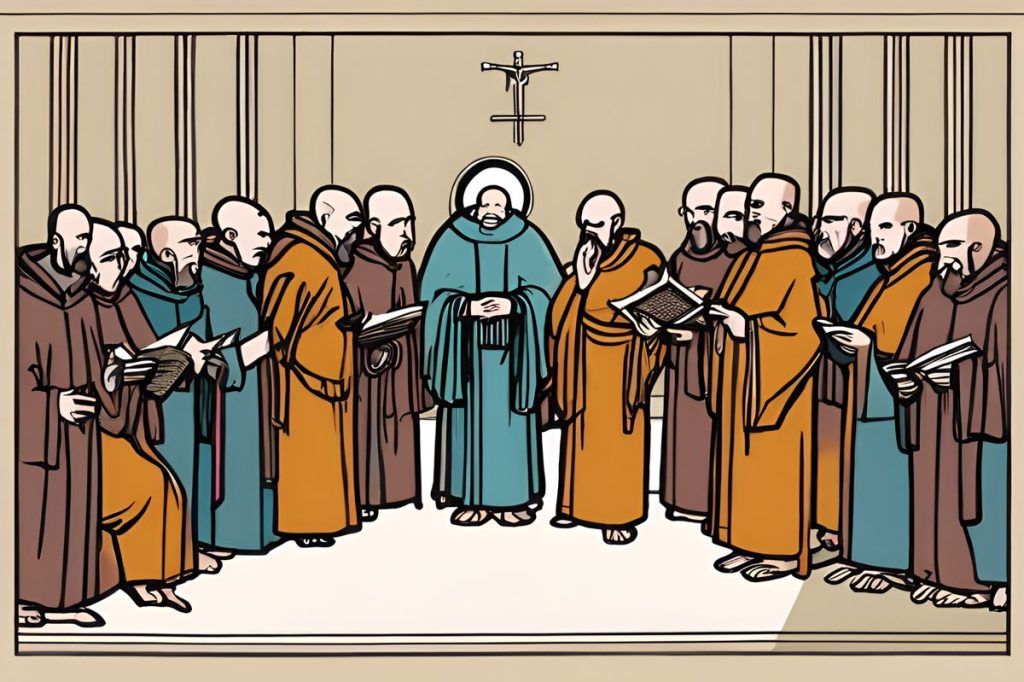The investigation into Osiou Avakoum Monastery scandals is in its final stages as two suspended monks are set to testify before the Holy Synod’s committee. Civilian law enforcement is also conducting a parallel investigation into sexual harassment claims and financial irregularities within the monastery, adding a layer of complexity to the case.
What is the status of the investigation into Osiou Avakoum Monastery scandals?
The investigation into the Osiou Avakoum Monastery scandals is in its final stages. Two suspended monks are set to testify before the Holy Synod’s committee, which is crucial for the ecclesiastical court’s verdict. Meanwhile, civilian law enforcement continues their parallel investigation into sexual harassment claims and financial irregularities within the monastery.
Monks to Address Holy Synod
The investigation into the scandals surrounding the Osiou Avakoum monastery is nearing completion. Next week, two monks currently under suspension are scheduled to provide their statements to the Holy Synod’s investigative committee. These testimonies are crucial as they represent the last segment of evidence to be gathered before the church authority can deliberate and reach a verdict.
Reports indicate that the gravity of the situation has weighed heavily on the monastery’s community. The atmosphere is tense, with the monks preparing to make their statements amidst the backdrop of religious observance and reflection.
The Role of the Ecclesiastical Court
At the core of this process is the six-member ecclesiastical court, which faces the challenge of sifting through the evidence and testimonies to arrive at a just conclusion. Despite nearing the final stages of evidence collection, insiders suggest that the court’s decision will not be rushed. The aim is not to adhere to a strict timeline but to ensure that the outcome is grounded in reliability and truth.
The CCTV footage obtained by law enforcement is under scrutiny to assess its legality and integrity. This material could prove pivotal in the court’s decision-making process. However, concerns over its potential illegality have been raised, and the ecclesiastical court, as well as the Synod, cannot remain indifferent to such implications.
Police Investigation and Civilian Implications
Parallel to the ecclesiastical inquiry, the civilian law enforcement is doggedly pursuing their investigation. This comes in the wake of revelations that the authorities had initially remained silent over sexual harassment claims and other alleged misdeeds, including financial irregularities within the monastery’s walls.
Theodoros Kyriacou, a theologian, has bolstered the credibility of these allegations by testifying in support of a sexual harassment complaint lodged by a former monastery employee against the establishment’s head. The courage of the complainant in coming forward at this juncture, after witnessing the unfolding events, has been noted as a significant development in the case.
The Broader Context of Monastic Integrity
The Osiou Avakoum case has shed light on broader issues of accountability and transparency within religious institutions. It brings to the fore the delicate balance between upholding religious tradition and confronting the modern-day expectations of ethical conduct and governance. The outcome of this inquiry may set a precedent for how such issues are addressed in the future and could instigate a period of profound introspection for monastic communities across the region.
The community’s response to the findings of the investigation and the subsequent actions by the Holy Synod will be closely monitored by both religious followers and the general public. It underscores the imperative for religious institutions to maintain not only spiritual integrity but also to uphold the moral and legal standards expected by society.
What is the current status of the investigation into Osiou Avakoum Monastery scandals?
The investigation into the Osiou Avakoum Monastery scandals is in its final stages. Two suspended monks are set to testify before the Holy Synod’s committee, which is crucial for the ecclesiastical court’s verdict. Meanwhile, civilian law enforcement continues their parallel investigation into sexual harassment claims and financial irregularities within the monastery.
What role does the ecclesiastical court play in the investigation process?
The ecclesiastical court, consisting of six members, is responsible for reviewing the evidence and testimonies gathered in the investigation. Despite nearing the final stages of evidence collection, the court’s decision-making process is not rushed. The aim is to ensure that the outcome is just and grounded in reliability and truth. The court is also examining the legality and integrity of CCTV footage obtained by law enforcement, which could be pivotal in their decision.
How is the police investigation connected to the ecclesiastical inquiry?
In parallel to the ecclesiastical investigation, civilian law enforcement is conducting their own inquiry into the allegations. This includes looking into sexual harassment claims and financial irregularities within the monastery. The authorities initially remained silent on these matters, but recent developments, including testimony from a theologian supporting a sexual harassment complaint, have shed light on the situation. The police investigation adds a layer of complexity to the case.
What broader implications does the Osiou Avakoum Monastery scandal have on the monastic community?
The scandal at Osiou Avakoum Monastery has sparked discussions about accountability and transparency within religious institutions. It highlights the challenges of balancing religious tradition with modern expectations of ethical conduct and governance. The outcome of the investigation may influence how such issues are addressed in the future and could lead to a period of introspection for monastic communities in the region. The response of the community and the actions taken by the Holy Synod will be closely watched by both religious followers and the general public.

